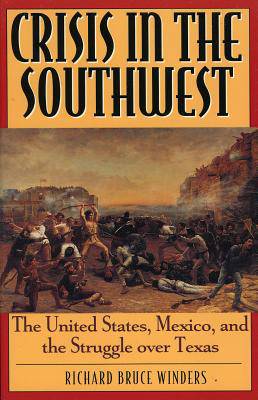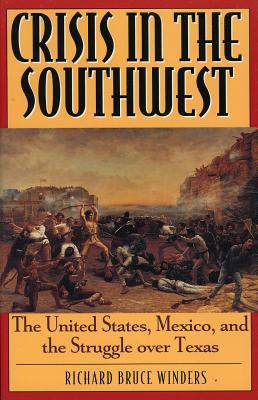
Je cadeautjes zeker op tijd in huis hebben voor de feestdagen? Kom langs in onze winkels en vind het perfecte geschenk!
- Afhalen na 1 uur in een winkel met voorraad
- Gratis thuislevering in België vanaf € 30
- Ruim aanbod met 7 miljoen producten
Je cadeautjes zeker op tijd in huis hebben voor de feestdagen? Kom langs in onze winkels en vind het perfecte geschenk!
- Afhalen na 1 uur in een winkel met voorraad
- Gratis thuislevering in België vanaf € 30
- Ruim aanbod met 7 miljoen producten
Zoeken
Crisis in the Southwest
The United States, Mexico, and the Struggle over Texas
Richard Bruce Winders
€ 135,95
+ 271 punten
Omschrijving
The war between the United States and Mexico was decades in the making. Although Texas was an independent republic from 1836 to 1845, Texans retained an affiliation with the United States that virtually assured annexation at some point.
Specificaties
Betrokkenen
- Auteur(s):
- Uitgeverij:
Inhoud
- Aantal bladzijden:
- 172
- Reeks:
Eigenschappen
- Productcode (EAN):
- 9780842028004
- Verschijningsdatum:
- 1/05/2002
- Uitvoering:
- Hardcover
- Afmetingen:
- 170 mm x 225 mm
- Gewicht:
- 440 g

Alleen bij Standaard Boekhandel
+ 271 punten op je klantenkaart van Standaard Boekhandel
Beoordelingen
We publiceren alleen reviews die voldoen aan de voorwaarden voor reviews. Bekijk onze voorwaarden voor reviews.









